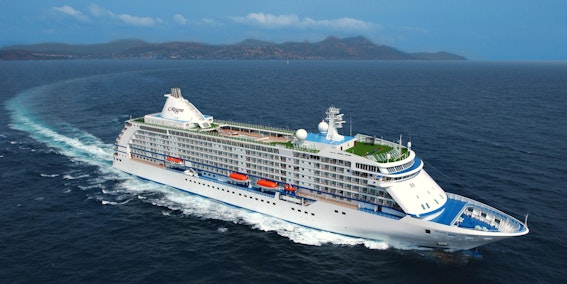More about Port Vila
Why Cruise to Port Vila?
Find heavily discounted duty-free products, or head out of town to swim at Mele Cascades
Some local taxis have been known to drive recklessly so perhaps consider an organized tour
A practical rather than pretty port, where local transport is needed to reach its natural beauty
Port Vila Cruise Port Facilities?
Passengers alight directly onto the wharf and are then directed through fenced and roped-off pathways onto Wharf Road. This is merely a thoroughfare when there is no ship in dock but, on cruise-ship days, long rows of souvenir markets magically appear, lining the road off to the left into town. Alongside them, a host of locals are eager to offer transport, private tours and a helping hand (and van) for a price. The good news is, most of these people are genuine and quite helpful -- it's a competitive market, after all. However, until the port area upgrade is completed, you'll find little official help in terms of currency or tours. Catch a bus, boat or taxi into town (see below) to the post office, where you will find ATMs (including a Westpac directly opposite), foreign exchange, tour offices and eateries. Stay on the post-office side of the main road and head north-west (away from the ship) and you'll come across the tourist information centre, filled with brochures and maps as well as friendly staff.
Good to Know?
Some swimming spots and beaches can have hard coral or active marine life underfoot -- reef shoes are a smart item to pack in your day bag. Sunscreen and mosquito repellent are also a must, like for most Pacific destinations. On a less practical but no less important note, try not to overfill your itinerary here. Vanuatu is known as the friendliest place on Earth, and taking a moment to sit in the shade in front of the markets and chat with the locals can yield as many happy holiday memories as the prettiest beach.
Getting Around?
By Taxi: The bad news is that taxis are relatively expensive in Port Vila and throughout Efate. The good news is, if you're staying within the town limits, you really don't need them.
By Bus: There is a wonderful local system of buses (really an odd assortment of vans) that charge a flat fee of 150VT (AU$1.90) to take you wherever you like within central Port Vila. If the bus driver already has quite a few passengers or isn't really going in your direction, he'll simply tell you to flag down another one. Look for the 'B' on the number plates of passing vans to find a bus, and there's no need to use bus stops -- wave them down wherever you like. There are generally plenty of buses hanging around the port when a ship is in town, too. Some travellers like to offer a higher amount (to be negotiated with the driver) to simply sit in the van awhile as other passengers come and go, and see the town that way. You never know whom you might end up chatting with! Keep in mind, though, that if you're in a hurry, these buses do operate somewhat on 'island time', depending on how many passengers are on board and where they're heading. Take a taxi if you're really pressed for time.
By Water Taxi: Another fun (and very local) way to get around is by water taxi; you'll find operators on the water side of the markets, along Wharf Road, holding signs to catch your attention. It's inexpensive and a little more adventurous, especially considering that the boats in question are sometimes on the small side.
Currency & Best Way to Get Money?
Official currency is the Ni-Vanuatu Vatu (or simply, vatu) -- for current conversion rates, check xe.com. Australian banks such as Westpac and ANZ have a good presence here, and most ATMs around town are widely used and well stocked. Keep some coins or small notes on you for buses and small purchases at the markets. Aussie dollars are often happily accepted, while most stores and resorts charge a surcharge to use credit cards. Tipping and hardcore bargaining are not widespread.
Language?
Vanuatu is an incredibly diverse and multilingual place. More than 100 languages are used throughout its islands, but its main three languages are Bislama, French and English. It is very easy to get by in Port Vila just by speaking English, but a basic knowledge of French certainly helps -- for example, a restaurant might have a 'plat du jour' (dish of the day). Bislama is a lovely Creole language based mostly on English, with some extra French and island influences -- it may look quite foreign as a written language, but say the words and their meaning becomes very clear (the ocean is 'solwata'; the best is 'nambawan'). It is very possible to have a conversation with a local where you speak English, they speak Bislama, and you both understand just about everything.
Where You're Docked?
Cruise ships dock at Port Vila's no-nonsense Main Wharf, among shipping containers and sometimes next to fishing boats, about a third of the way up Wharf Road in the Laho area of town. The 30 to 45-minute walk into town is not recommended as it is a fair distance that is sometimes uphill and not often on a footpath. The wharf area is currently being worked on as part of an enormous beautification and upgrade project affecting both the cruise dock and the town's waterfront. However, the timeline for completion is somewhat unclear. Meanwhile, there are sometimes roadblocks to limit taxi and bus access to the ship, although they get very close to the wharf so there is little drama caused by the works at this point.
























